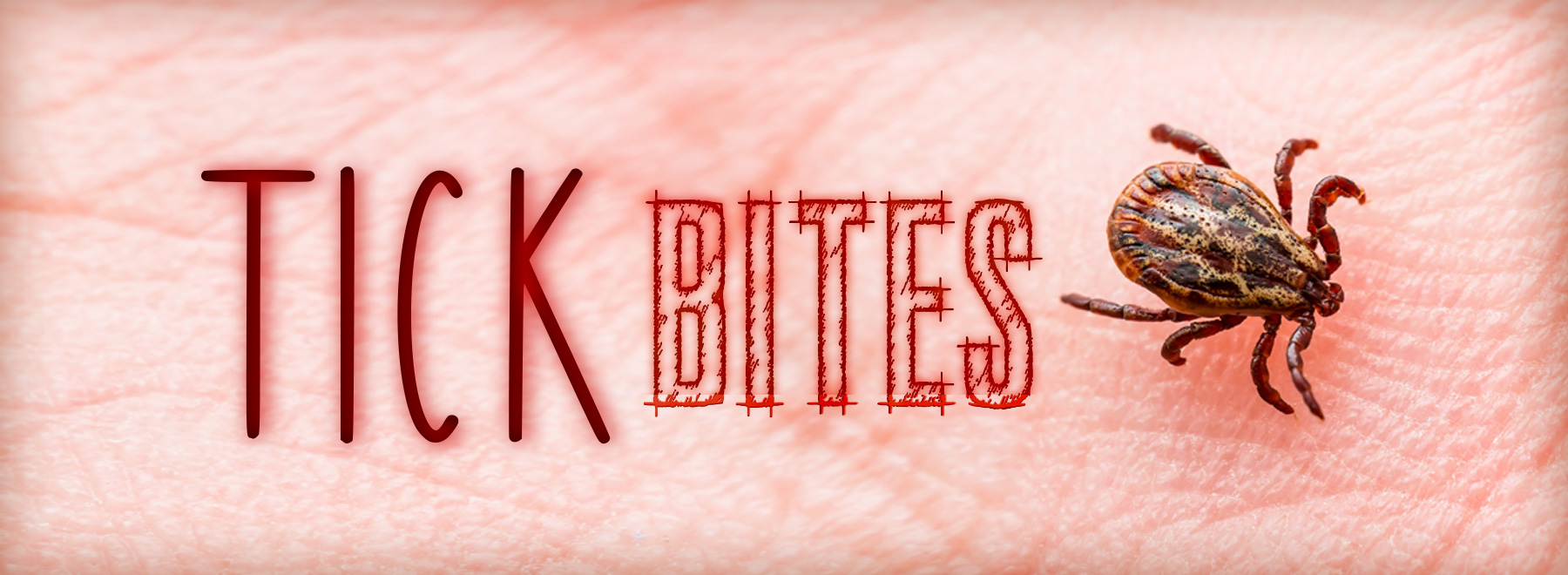Don’t let time tick away when these pests bite
The cold-blooded tick enjoys stowing away on a warm body by sticking out its legs; perhaps because it has eight of them, it’s really good at it.
But that’s just the beginning of its dreaded work, as anyone who has ever suffered its blood-sucking bite will know.
In this outdoorsy time of year, and at least through September, is when you are most likely to feel that bite and, worse, catch a disease that could be fatal without timely treatment.
While deadly tick encounters are relatively rare in Mississippi, there are ways to make them rarer by being aware.

“They can be anywhere on you,” said Dr. April Palmer, professor of pediatric infectious diseases at the University of Mississippi Medical Center and chief of the Division of Pediatric Infectious Diseases.
“Often, they’re in areas like the scalp, on the middle of the back – anywhere that’s hard to see – that is when they tend to get missed.”
Most likely, using their front legs, they’ve attached to you in ambush from blades of grass, leaves or shrubs. Some are too small to see or feel.

“You could have a tick bite and not know it, especially from a tick in an immature stage,” said Dr. Jerome Goddard, an extension professor of medical and veterinary entomology at Mississippi State University who co-authored "A Guide to the Ticks of Mississippi".
“In the larval stage, one Lone Star tick is about the size of a period at the end of a sentence. In the nymph stage, it’s about the size of a sesame seed.” One can be lost in a skin-scape of freckles and moles.
Lone Stars are among the most common tick types in Mississippi. The females display a white dot that may resemble a star or a blot of mayonnaise. It spreads Southern Tick Associated Rash Illness (STARI), which can produce a ring rash, fatigue, muscle and joint pain.
It is also a carrier of a bacterial illness, ehrlichiosis, and alpha-gal syndrome, an allergy to red meat.
In Mississippi, particularly in the winter, you may also be assaulted by a deer, or blacklegged, tick, a carrier of many diseases, including ehrlichiosis.
But that’s not the end of it.
“The most worrisome tick-borne disease in Mississippi is Rocky Mountain Spotted Fever. It’s associated with the highest mortality rate,” Palmer said.
In the eastern U.S., it is spread by the American Dog Tick, Goddard said.
Mississippi recorded 115 cases in 2019, the latest year available, Goddard said, “but cases are probably under-reported.”
Rocky Mountain Spotted Fever’s vector delivers a bite that can result in a “splotchy red rash that slowly turns into dots,” Palmer said. “It can start anywhere on the body and the typical dot-like rash, or petechial rash, usually occurs late into the illness, which is when you can get really sick.
“You can end up in the ICU with a life-threatening condition, sepsis.
“Early on, in the first one to four days after a bite, kids can present with fever, chills, malaise; older children tend to have a pretty bad headache, as do adults. Really young children, toddlers or infants, don’t often complain of headaches.
“If you’re concerned about your child, call your physician, get seen as soon as possible. If your child is not acting appropriately, or you’re worried about a rash, you should probably go to the emergency room.
“RMSF can be treated with doxycycline, a very common antibiotic. It may come in a liquid, too. People worry about it staining their teeth, but one course shouldn’t do that. It’s the only treatment by mouth for RMSF. But if someone is really sick, they can get it through an IV.”
Early treatment is key, Palmer said.
There is least one more disease you can add to the list of tick threats, Goddard said. “Right now, it’s a hot topic: the Heartland virus. It’s been found in Alabama recently, so it’s probably here, too.
“It can make you really sick. Antibiotics don’t do you any good with a virus. This disease comes from the Lone Star ticks. Almost everyone gets bitten by them some time or other if you’re out in the woods in Mississippi.
“There’s nothing specific about the symptoms: fever, fatigue, headache, muscles and joint pain. And there are no vaccines or medications for the Heartland Virus.” It’s being discovered in places outside the heartland, which is roughly the Midwest and a few Southern states.
“People are worried about Lyme disease,” Goddard said, but it’s not common here. “In Mississippi, in 2019, there were four cases of Lyme disease reported to the Mississippi State Department of Health.
“Those infections could have been brought back from another state; we don’t know. I’m not saying it never occurs here, but the main one to worry about in Mississippi is Rocky Mountain Spotted Fever.”
Those most at risk for tick-borne diseases are hikers, hunters, anglers, backpackers, foresters, farmers and owners of outdoor pets. “Don’t forget to protect your pets with up-to-date with tick and flea protection,” Palmer said. “Pets can share their ticks with humans.”
Also: anyone who mows the lawn or who gardens is tick prey. Ironically, keeping the grass mowed and bushes cut back are ways to keep ticks at bay.
“Let the wind and the sun in your yard. That kills ticks,” Goddard said. “They’re sensitive to drying out, desiccation. You can also can spray yards with pesticides. Or get a professional pest control company to treat the perimeter.
“I wouldn’t routinely spray my yard with pesticides, unless there’s a really big problem, because you don’t want to kill what else is there, like butterflies. There are also tick repellents.
“When I go into some tick-y woods I wear knee-high rubber boots and stuff the pants legs down in them. Otherwise, you’re offering the tick a highway to your body. I also spray a repellent at the top the boot.”
DEET works well, Palmer said. “But it’s not recommended for children under two months of age. The maximum concentration for older children is 30 percent. Make sure it’s no higher.
“If you’re sending your child to camp, you can spray a repellent called permethrin on their clothing and gear. Some camping gear and clothing have prevention built in and will say so on the label.
“Teach your children tick inspection; before they go to bed at camp, they should inspect such hard-to-see places as the scalp.
“Although this may not be as practical in the South because of the heat, the Centers for Disease Control and Prevention recommends wearing long-sleeved shirts and long pants outdoors.”
After you’ve been outdoors, take a shower right away – “before ticks can attach and bite,” Goddard said.
If you spot a tick making itself at home, what should you do? First of all, the answer is not fat ticks roasting on an open fire.
“Don’t put a match to it,” Palmer said. This causes the tick to regurgitate; this is as bad as it sounds.
“Don’t smother it with mineral oil. Instead, gently pull it out with tweezers,” Palmer said.
And don’t “unscrew” it, Goddard said. “They don’t screw in, so why would you unscrew something that doesn’t screw in?”
The above article appears in CONSULT, UMMC’s monthly e-newsletter sharing news about cutting-edge clinical and health science education advances and innovative biomedical research at the Medical Center and giving you tips and suggestions on how you and the people you love can live a healthier life. Click here and enter your email address to receive CONSULT free of charge. You may cancel at any time.



